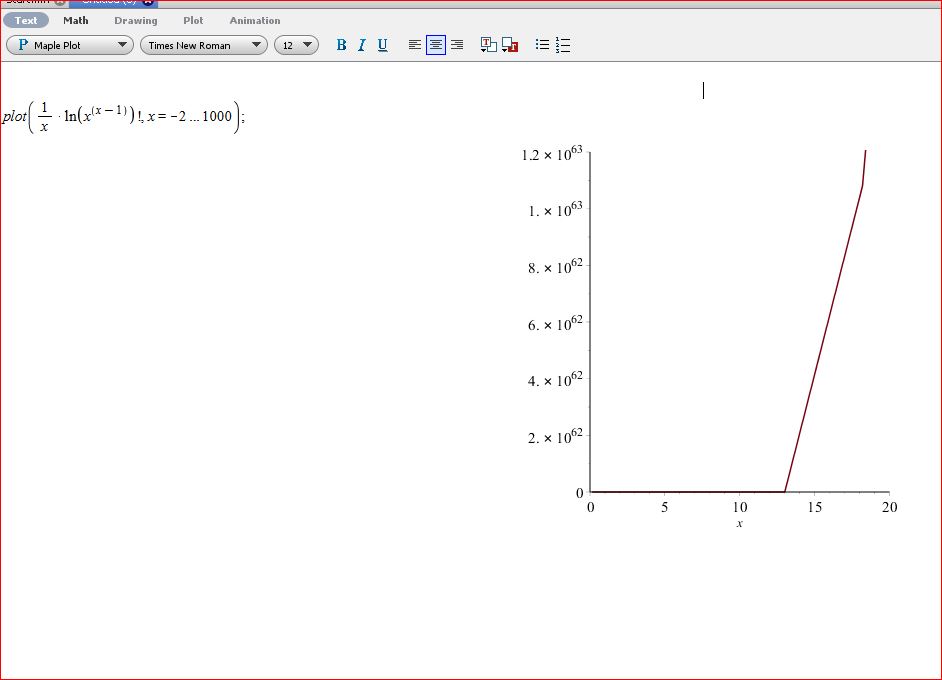#color(blue)("Consider the parts:")#
#x^x/x =x^(x-1)#
#x^(x-1)! = x^(x-1)xx(x-1)^(x-2)xx(x-2)^(x-3)xx....#
#ln(x^(x-1)!) = ln(x^(x-1)xx(x-1)^(x-2)xx(x-2)^(x-3)xx....)#
#ln(x^(x-1)!) =(x-1) ln(x)+(x-2)ln(x-1)+(x-3)ln(x-2)+....)#
#color(blue)("Consider the whole")#
#1/xln(x^(x-1)!) =1/x{(x-1) ln(x)+(x-2)ln(x-1)+(x-3)ln(x-2)xx....}#
#1/xln(x^(x-1)!) =(x/x-1/x) ln(x)+(x/x-2/x)ln(x-1)+(x/x-3/x)ln(x-2)xx....}#
#Lim_(x->oo) 1/xln(x^(x-1)!)=Lim_(x->oo)(x/x-1/x) ln(x)+Lim_(x->oo)
(x/x-2/x)ln(x-1)+...#
Consider just the first term:
#Lim_(x->oo)(x/x-1/x) ln(x) -> {(oo)/(oo) -1/(oo)}ln(oo) =1xxln(oo)=oo#
All the following terms can only add to a number that is already at #oo#
#"~~~~~~~~~~~~~~~~~~~~~~~~~~~~~~~~~~~~~~~~~~"#
Which I suspect it does. I can not state this with any confidence though!


